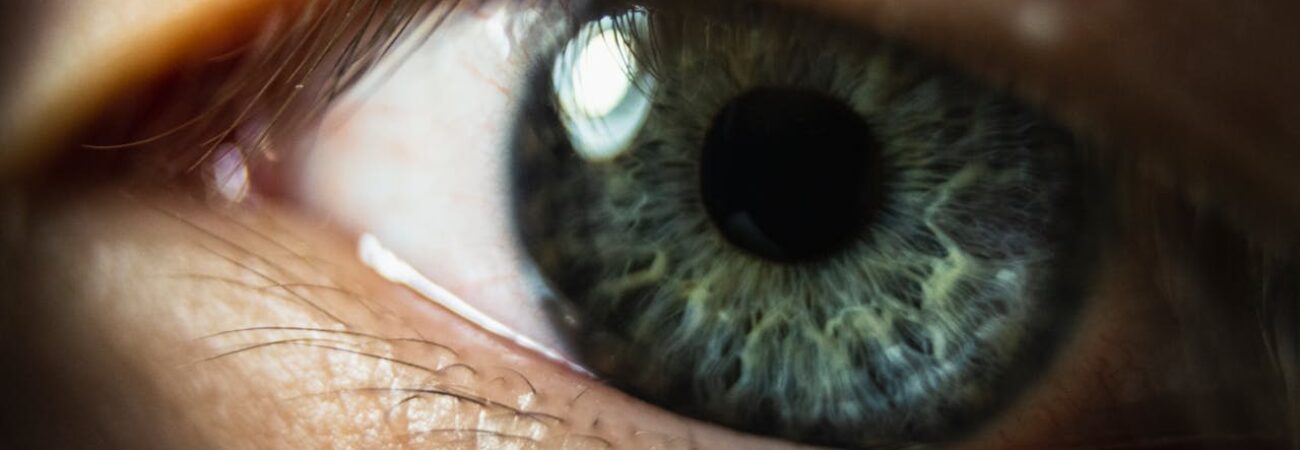Waking up with a little eye gunk is normal, but excessive buildup can be a sign of infection, leading to what’s commonly known as gunky eyes or eye discharge. More than just a minor irritation, gunky eyes can indicate a larger issue.
What Are Gunky Eyes?
Gunky eyes refer to a common eye condition characterised by a sticky, yellow, or green discharge that can make it difficult to open your eyelids. If left untreated, this condition may worsen, so it’s important to consult an eye doctor promptly.
At EyeSelect, we specialise in diagnosing and treating eye infections, including gunky eyes. In this blog, you’ll learn about the causes of severe eye gunk, available treatments, prevention tips, and when it’s time to see an ophthalmologist or optometrist.
How Do Gunky Eyes Form?
During the day, your tear film (the protective layer on your cornea) keeps your eyes moist, flushing out debris and mucus produced by your conjunctiva (the clear membrane lining your eyelids) and the oil from your meibomian glands. While you sleep, blinking stops, causing eye gunk to accumulate at the corners of your eyes or along your eyelashes.
Changes in the quantity, colour, or texture of this mucus can lead to gunky eyes, often indicating an underlying issue.
Eye Gunk vs. Gunky Eyes
Eye gunk is normal, especially in the morning. It’s typically a clear or light yellow, sticky substance that doesn’t require treatment. However, if you notice excessive, watery, or thick discharge, it could be a sign of an infection or allergies, leading to eye pain and light sensitivity.
Now that you understand the difference between regular eye gunk and gunky eyes, let’s explore the different types of gunky eyes.
Types of Gunky Eyes
1. Green Eye Gunk
Green discharge often signals a bacterial infection, such as conjunctivitis or blepharitis. Consult an optometrist for diagnosis and immediate treatment.
2. Yellow Eye Discharge
A stye can cause yellow mucus along with a small, painful lump on your eyelid. The lump is often accompanied by swelling and discomfort.
3. Excessive Eye Discharge
Also known as watery eye discharge, this occurs when excess mucus mixes with watery tears, often due to irritation or infection.
4. Sticky Eye Gunk
Waking up with crusty, swollen, and sticky eyes is a common sign of conjunctivitis or an eye infection, often accompanied by swelling.
5. Foamy Eye Discharge
Foamy discharge is less common but may indicate dry eye syndrome or issues with your tear ducts.
6. Pus at the Corner of Your Eye
A small ball of pus forming in the corner of your eye may signal a bacterial infection or blocked tear duct.
How to Know if You Have Gunky Eyes
1. Examine the Colour
Yellow or green discharge suggests bacterial infections, while white or clear discharge could indicate dry eyes or allergies.
2. Check the Consistency
Is your eye gunk thick and sticky, or watery and clear? Use the type of discharge to identify the cause.
3. Look for Additional Symptoms
Redness, swelling, itchiness, or the feeling that something is in your eye could be signs of a bacterial infection, blepharitis, or keratitis.
Causes of Gunky Eyes
1. Improper Use of Contact Lens
Wearing daily or monthly contacts for too long or failing to clean them properly can lead to irritation, dryness, and bacterial buildup, causing gunky eyes.
2. Sore Eyes (Conjunctivitis)
Sore eyes is a highly contagious eye infection that often causes gunky eyes. It’s caused by pathogens, such as bacteria or viruses, that irritate the conjunctiva. This inflammation can lead to redness, pain, discomfort and the production of pus.
3. Allergies
Allergic reactions to dust, pollen, or pet dander can cause watery, clear eye discharge. While this symptom is typically not severe, it can be uncomfortable. Over-the-counter antihistamine eye drops can help alleviate these symptoms.
4. Blocked Tear Ducts
Blocked tear ducts prevent tears from draining, leading to gunky eyes. This is more common in newborns but can also affect adults.
5. Dry Eye Discharge
Lack of tear production can cause the mucus and oil in your eyes to dry out and clump together, forming gunky eyes.
6. Keratitis
Keratitis is a serious eye condition caused by inflammation of the cornea, the clear, dome-shaped tissue at the front of your eye. Often caused by infections, keratitis can produce pus-like eye discharge.
7. Trachoma
Trachoma is a highly contagious bacterial infection that affects the eyes and eyelids. Symptoms include mild eyelid itching, eye irritation, swollen eyelids and pus-like discharge. Untreated trachoma can lead to blindness.
8. Stye
A stye is a small, painful lump that develops on the edge of your eyelid due to an infection. It often produces pus-like discharge and can cause swelling, redness, and discomfort in the affected eye.
Treatment for Gunky Eyes
Medical Treatments
- Antibiotics: For bacterial infections, your optometrist will prescribe antibiotic eye drops or ointment.
- Antifungals: While less common, antifungal medications may be necessary for fungal infections.
- Antivirals: Antiviral eye drops can be effective for viral infections.
- Antiparasitics: In rare cases of parasitic infections, antiparasitic medications may be prescribed.
Home Remedies
- Antihistamine Eye Drops: Over-the-counter antihistamine eye drops can help relieve allergy-related eye discharge.
- Artificial Tears: Lubricating your eyes with artificial tears can soothe dryness and discomfort.
- Warm or Cold Compresses: A warm compress can help loosen and remove eye discharge, while a cold compress can reduce inflammation and itching.
- Contact Lens Hygiene: If you wear contact lenses, ensure proper hygiene to prevent infections and irritation.
How to Prevent Gunky Eyes
- Keep your contact lenses clean and replace them according to the manufacturer’s recommendations.
- Wash your hands frequently with soap and water to prevent the spread of germs. Avoid touching your eyes with unwashed hands.
- Use clean makeup brushes and applicators. Remove all makeup before going to bed, and gently cleanse your eyelids with a warm, damp cloth.
When to Seek Professional Help
If your gunky eyes persist, or you experience any changes in vision, it’s important to consult with an optometrist. Early diagnosis and treatment can help prevent complications and ensure optimal eye health.
For a convenient and reliable optometry clinic, consider EyeSelect. Our experienced optometrists offer comprehensive optometry services and personalised treatment plans.
Whether you need prescription eye drops, contact lens fittings, or other eye care services, we’re here to help. Our team of optometrists are equipped to diagnose and treat various eye conditions including gunky eyes, phoria eyes, and even glaucoma.
Visit our clinic today to address your gunky eyes and ensure optimal eye health.





